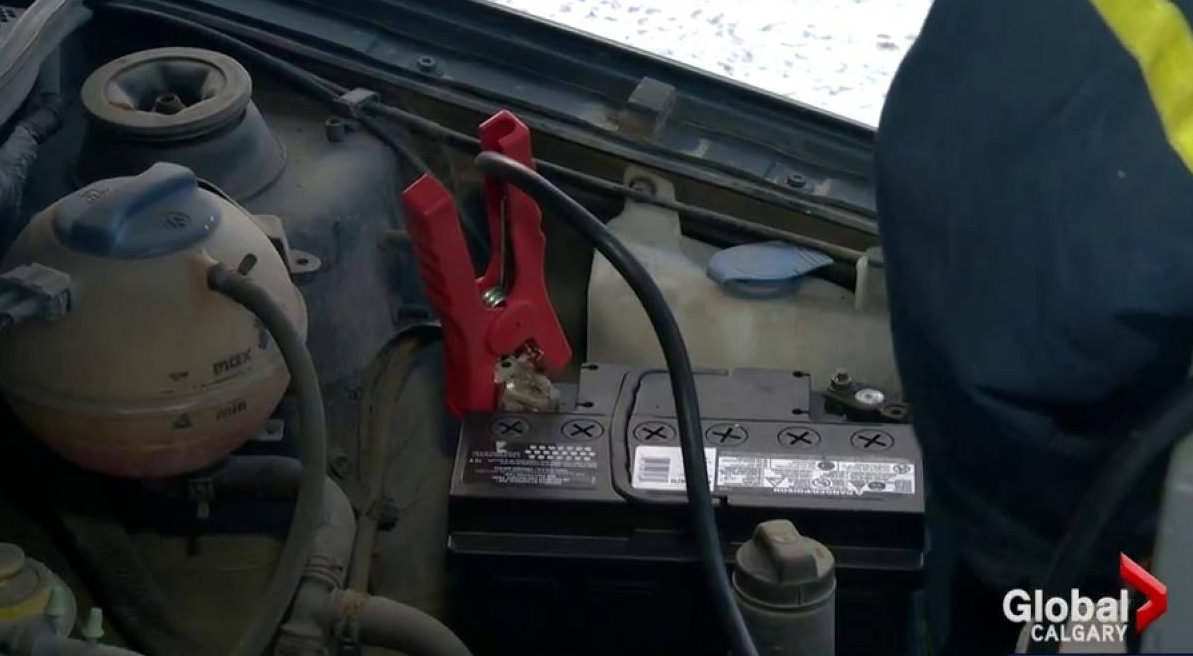A new survey released by the Alberta Motor Association has found a lack of awareness as the leading factor for Albertans not preparing their vehicles for winter driving.

Of the 2,409 Albertans surveyed, the most commonly cited reasons were “I know my vehicle will handle winter just fine,” and “I drive in the city so it’s not a big issue.”
Ryan Lemont, manager of AMA Driver Education, said weak batteries have a difficult time turning over a cold engine in the winter, which is why it’s so important to get your battery tested and to plug in.
“The huge increase in failing batteries can almost entirely be attributed to weather,” Lemont said Tuesday after snow hit the ground in Calgary.
Signs of a weak battery include:
- headlights dim while idling
- frequent boosts/not holding a charge
- vehicle slow to turn over
- engine cranks but doesn’t start
As harsh winter temperatures settle in for the season, paying attention to the health of your vehicle battery is important and reduces the risk of it failing.
According to the survey, 38 per cent of Alberta drivers have never had their battery tested, wait “until it fails for the first time” or wait “until after the five-year mark.”

Get daily National news
WATCH BELOW: Global News spoke to an expert on what you should take with you if you’re heading out driving in potentially risky conditions.

The survey also found that over half of Albertans are not plugging in their vehicles when temperatures dip below -15 C.
If a vehicle is parked outside, AMA recommended the block heater be plugged in for at least four hours before hitting the road.
Additionally, the survey found that three-quarters of Albertans keep an emergency kit in their vehicle and two-thirds put on winter tires.
Almost half of drivers who don’t have an emergency kit said they plan to get one but “haven’t gotten around to it,” and 22 per cent say they will just call for help if needed.

Roadside emergency kit contents recommended by AMA:
- booster cables
- phone charger
- hand/foot warmers
- reflective armbands
- ice scraper
- folding shovel
- sand/kitty litter
- fire extinguisher
- multi-tool (pliers, knife, etc.)
- candles for light and heat
- waterproof matches
- tin can (to hold the candles)
- small first aid kit
- self-powered flashlight
- work gloves
- paper towel/rags
- warm clothing
- jug of water
- protein bars (rotate regularly)
- caution triangle for visibility
- warm blanket
- local map
- duct tape
Roadside emergency kits, which include many of these items and a few more, are also available at any AMA centre.










Comments
Want to discuss? Please read our Commenting Policy first.